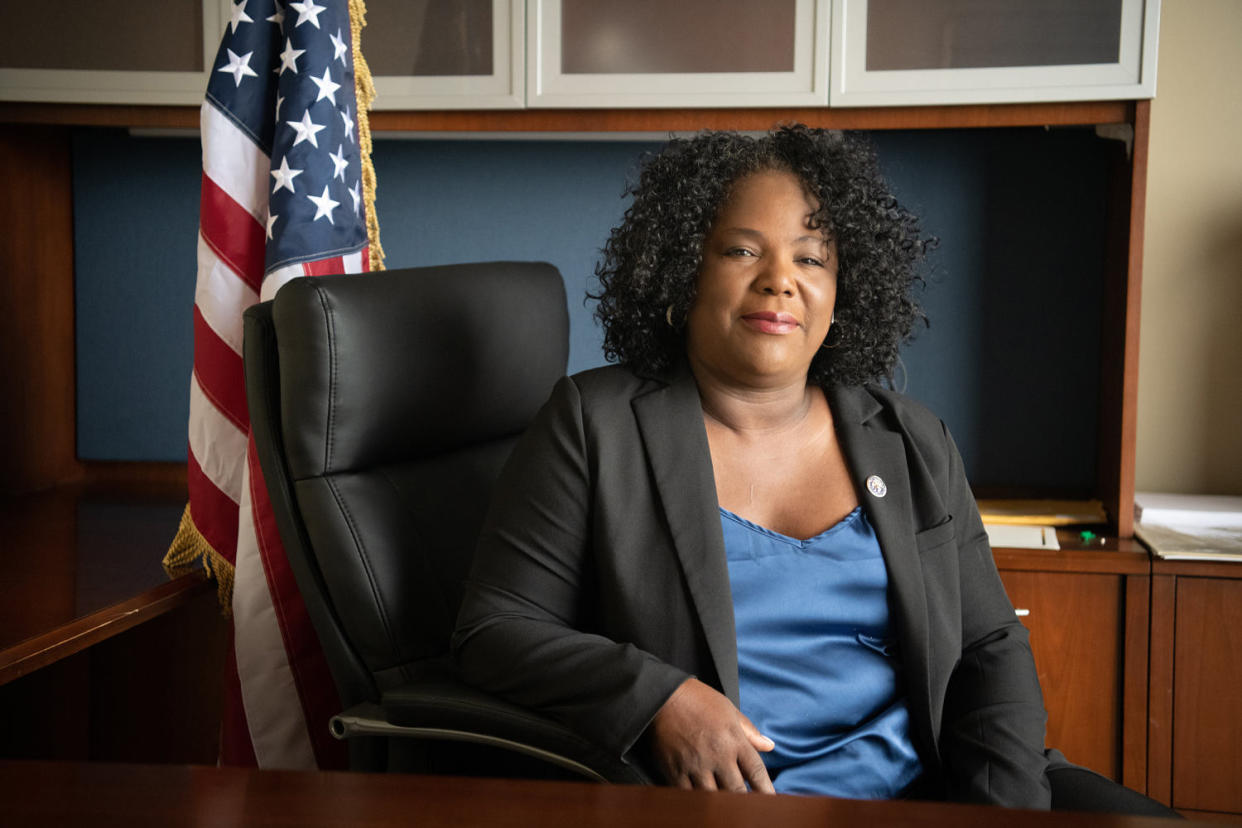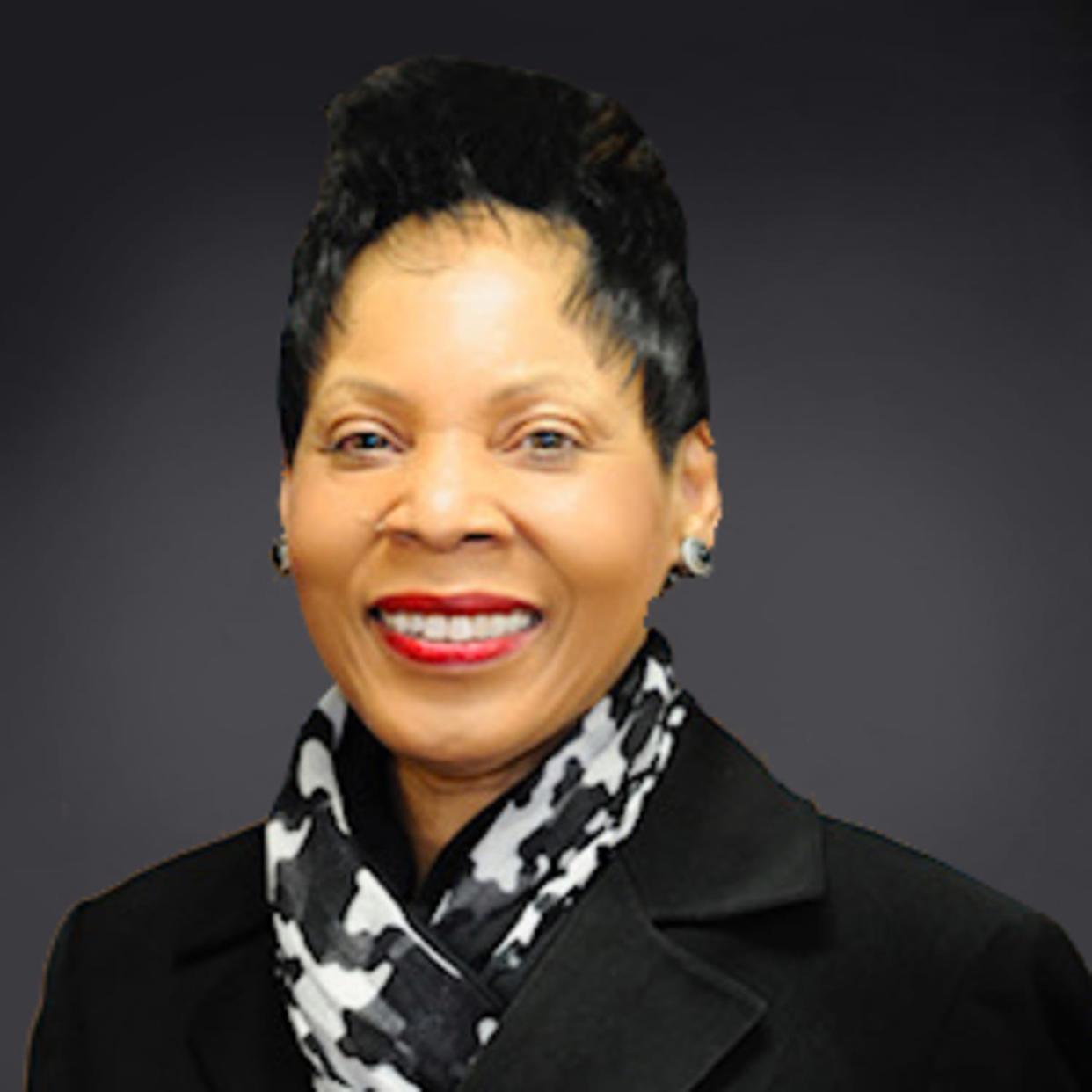Louisiana state rep shares her mother's story in push for rape exception to abortion ban
When state Rep. Delisha Boyd was born in September 1969, abortion was illegal in Louisiana. Roe v. Wade, the landmark Supreme Court decision, was still more than three years away.
So when her 15-year-old mother conceived her after a statutory rape by a 28-year-old man, Boyd said, she had few options. She could carry the pregnancy to term or flee to a state that allowed abortions.
Today, a girl in Louisiana could face a similar choice.
Understanding that reality prompted Boyd, a Democrat who has represented Orleans Parish since 2021, to launch an uphill political crusade to add exceptions for rape and incest to Louisiana’s abortion ban.
Despite broad support for such measures in the state and nationally, Boyd’s first attempt failed last year, amid opposition from Republican legislators and anti-abortion groups, like Louisiana Right to Life. “Every person deserves the same protection under the law, no matter the nature of their conception,” the group recently wrote on its website.
Some Republicans nationally have softened their hard-line stances on abortion amid the electoral backlash to Dobbs v. Jackson Women’s Health, the Supreme Court decision that overturned Roe v. Wade. But Louisiana’s current religious and political landscape is one in which even Democrats don’t universally support exceptions for rape and incest.
Louisiana is now one of at least 11 states that have either severely restricted or banned abortion without exceptions for rape or incest. The ban allows abortions only for certain fetal conditions or if a pregnant patient’s life is in danger. Doctors can be imprisoned for up to 15 years and fined $200,000 for violating the law.
Before the Supreme Court overturned Roe v. Wade in June 2022, there were three abortion clinics in Louisiana. Out of the 7,444 abortions reported in the state in 2021, the last full year before the abortion ban went into effect, at least 37 patients, some of them under age 15, said rape or incest was the reason for their abortions, according to the Louisiana Health Department.
The three clinics shut down in 2022, and last year only three abortions total — for any reason — were reported statewide, according to an agency spokesperson.
Today, Boyd said, she’s concerned about survivors without the means to travel out of state for abortion care and the actions they may take in desperation.
In an interview, Boyd said her mother’s experience drove her to self-medicate with drugs. She was only 28 when she died from an overdose. “She didn’t die in childbirth,” Boyd said, “but ultimately she lost her life because of what happened to her.” The man who raped her mother has also since died.
In February, Boyd reintroduced her bill, despite the odds.
“If I don’t do it, who will?” she said.

In the wake of the Dobbs decision, doctors, advocates for rape survivors and abortion-rights supporters have shared concerns about what it means for victims of rape and incest.
Dr. Nicole Freehill, an OB-GYN based in New Orleans, has treated at least two pregnant rape survivors since the ban passed.
“Pregnancy is not a benign condition,” she said. “Why should you make somebody go through a dangerous medical condition for nine months if it was not something they ever intended or tried to have happen?”
Freehill recalled treating an adolescent who became pregnant after her uncle raped her. She came into the emergency room with stomach pain and didn’t know the cause until an ultrasound examination showed she was about 19 weeks pregnant. Another had taken emergency contraception after having been date-raped but still became pregnant.
Freehill believes both were ultimately able to go out of state for abortion care. But that option has its own barriers. Some of the abortion clinics nearest to New Orleans are more than 300 miles away in Florida. And access in the Southeast will plunge next month when Florida’s six-week abortion ban takes effect.
Abby Ledoux, a spokesperson for Planned Parenthood Gulf Coast, which serves Louisiana and part of Texas, said the nonprofit group has patient navigators, who help connect clients, including some rape and incest survivors, to abortion resources.
She said exceptions for rape and incest don’t guarantee that survivors will find providers willing to perform the procedure.
In Mississippi, where the state’s sole abortion clinic closed in 2022, a 13-year-old rape victim was unable to get an abortion, despite the state’s exception for such cases. Their doctor said the nearest abortion provider was in Illinois; the family did not have funds for travel.
Still, Planned Parenthood Gulf Coast supports Boyd’s bill. It would be far better to overturn the abortion ban, she said, but “any care in this state is important and a step in the right direction.”
Last May, Boyd shared her mother’s experience publicly for the first time at a committee hearing. She said she felt compelled to help her colleagues understand the harm that could come from having no exceptions.
Boyd told them that she didn’t know what her mother would have done if she had had a choice — and that she couldn’t speak for other survivors. “It is not my right to decide how that woman chooses,” she said.
During the public comment period, Dr. Damon Cudihy, an OB-GYN and military veteran, argued against the bill. “It would be more just to apply the death penalty to rapists, not to the innocent children,” he said.
Democratic Rep. Alonzo Knox, a former Marine, fired back. “When you served, you fought for freedom, right?” he asked. “So can you help me understand as you sit here today why do you want to take freedom away, particularly for women?”
At the end of the hearing, the bill failed along party lines.
This year’s bill may fare no better. Boyd said she spoke with Democratic Rep. Patricia Moore, who has also spoken publicly about having been conceived by rape, about the bill. Asked for comment, however, Moore said she plans to vote no.

In sharing her position, she referred to her religious beliefs.
“I do believe every child that comes into this world, every pregnancy, if God allowed it, it was for a purpose,” Moore said. “It’s not like it’s a mistake.”
Boyd knows the bill’s passage is unlikely. It has yet to be scheduled for a committee hearing, which is required before a vote. Still, she refuses to back down. “I’m too old to be afraid of what might happen and too young not to do anything about it.”
